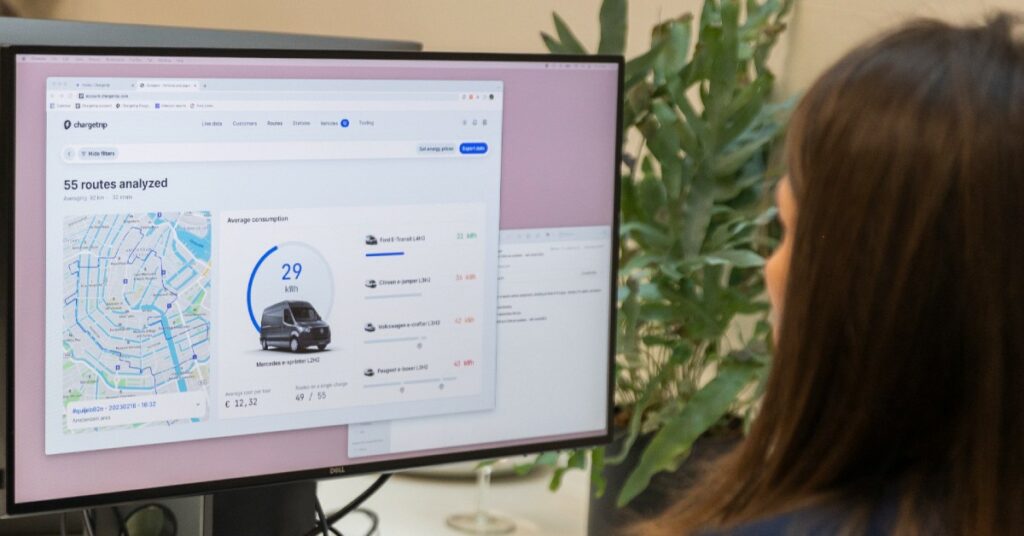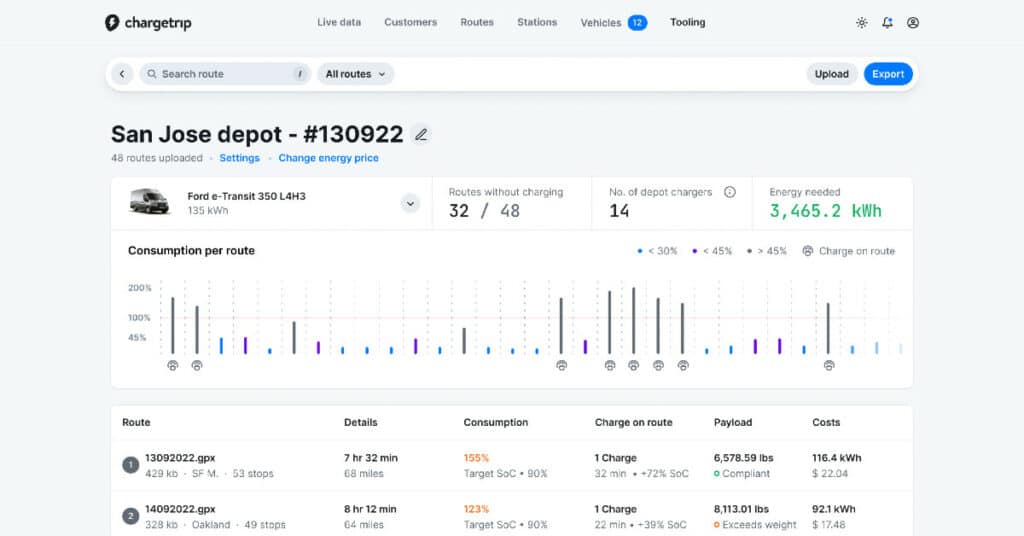Amsterdam-based Chargetrip announced on Tuesday, March 21, that it has raised €10M in Series A funding.
With the funding, Chargetrip plans to further scale its range prediction and EV routing technology to North America and support fleet operators.
The Series A funding was led by HSBC Asset Management and new investor Riverstone LLC. Existing investors, Blue Bear Capital, Vindeggen, and Axel Springer Porsche, also joined the round.
Electric Vehicles (EVs) made up about 14 per cent of global car sales in 2022, up from 9 per cent in 2021.
However, their adoption and use in fleet operations remain slow and Chargetrip wants to use technology to speed it up.
Solving for range anxiety

Range anxiety was often cited as a top fear among would-be buyers of electric vehicles in an Axios report last month.
While those fears are justified, EVs have come a long way such that electric car road trips are not only possible but trump the ICE (internal combustion engine) experience with proper planning.
With its API SaaS platform for smart EV routing, Chargetrip helps with this planning.
Gideon van Dijk, CEO and co-founder of Chargetrip, says, “The range and infrastructure today is enough for 99 per cent of trips; it is just about optimisation.”
He adds that range still remains a major concern for consumers but it is even more for commercial fleets.
“Long wait times and inconvenient charger locations are annoying for individuals, but for commercial vehicles it has an impact on the bottom line and keeping up operations,” he adds.
Having routed about 15 per cent of EV drivers in Europe in 2022 through its API, Chargetrip understands the technological challenge better than some EV makers.
For the Dutch startup, the problem surrounding EV adoption extends beyond range or charge anxiety and sees the real problem to be understanding how far one can drive and plan the trip around that data.
Tool to predict energy demand

Planning a trip with an EV requires taking into account a number of factors including weather, battery capacity, charge network, and station availability. All these factors only make the experience unpredictable.
With its smart EV routing platform, Chargetrip wants to take this uncertainty away and make EV operation predictable and scalable.
It does this with a routing engine that takes into account over fifteen different variables, including temperature, weather, charge speed, elevation, rolling resistance, real-time vehicle data, and availability of charge stations, to calculate real-time range of any electric vehicle.
During a 2021 road trip from the Netherlands to Croatia in an electric Polestar, Chargetrip co-founder and CCO Pieter Waller found how the native Google navigation tool wasn’t enough to plan the trip.
With Chargetrip, EV owners can find the best route to their destination with access to optimal charge stations in between.
“We have found out the real problem is not knowing where to charge, but how much energy you will consume on your trip, then optimising routes with that data,” says Gideon.
“The real value is in accurate energy prediction, not just mapping.”
The startup already counts Sixt, Engie, Repsol, and Porsche among its customers, and is working with automakers to bring its routing tech to more commercial and personal EVs.
Fund utilisation and investors

With the new funding, Chargetrip aims to charge EV trips in North America and also prepare commercial fleet operators with electrification.
EVs made up 5.6 per cent of the US car market in 2022 and US President Biden has approved $7.5B in investment in EV charging infrastructure.
“The US subsidies from the Biden administration were certainly a driver for this expansion,” says Gideon before adding that he welcomes Tesla’s decision to open its supercharger network to non-Tesla EVs.
Gideon adds, “With some recent deals, we already expect to route hundreds of thousands of EVs in the US in the next few years.”
However, the real goal of Chargetrip is to help fleet operators not only adopt EVs but make it business sense for them.
For fleet operators, the electrification problem is complex. They need to consider everything from which EVs to buy to how much energy their fleets will need, when and where the energy will be needed.
“Without this info, they can’t even make effective decisions to get started,” explains Gideon.
For fleet operators, electrification will mean disrupting their whole business operation and Chargetrip wants to give them tools to quickly and accurately predict energy demand so they can make these decisions.
When asked about the challenge expanding to the US, Gideon does not shy away from speaking about the difficulty mapping the charging network.
“There are many different data standards, formats, and levels of integrity to integrate together into a comprehensive dataset,” he says.
“We also work with a couple trusted data patterns to supplement our data.”
With growing EV adoption and investment demand in the clean energy space, Chargetrip is also planning a second close with a maximum of “€2M against the same terms.”
The transition to EVs are initially plagued by cost and then by range anxiety. But now there are multiple automakers offering well-priced EVs aimed at both consumers and fleet operators.
For the gap in finding the most effective route with charging network and maximise range, Chargetrip feels it has cracked the solution with its routing platform.
With the expansion to the US, Chargetrip aims to route 25 per cent of EVs in the world.
“As fleet operators and auto OEMs rapidly electrify their vehicles, Chargetrip’s routing and planning technology make charging intelligent, transforming the driver experience and optimising fleet operations,” says Christophe Defert, Head of Climatech Investments at HSBC Asset Management.
“The future of electric powered fleets will not only be about building the charging infrastructure, but also orchestrating those fleets with new dispatching and telematics technology, which Chargetrip brings together.”










01
From telecom veteran to Dutch Startup Visa success: The Jignesh Dave story